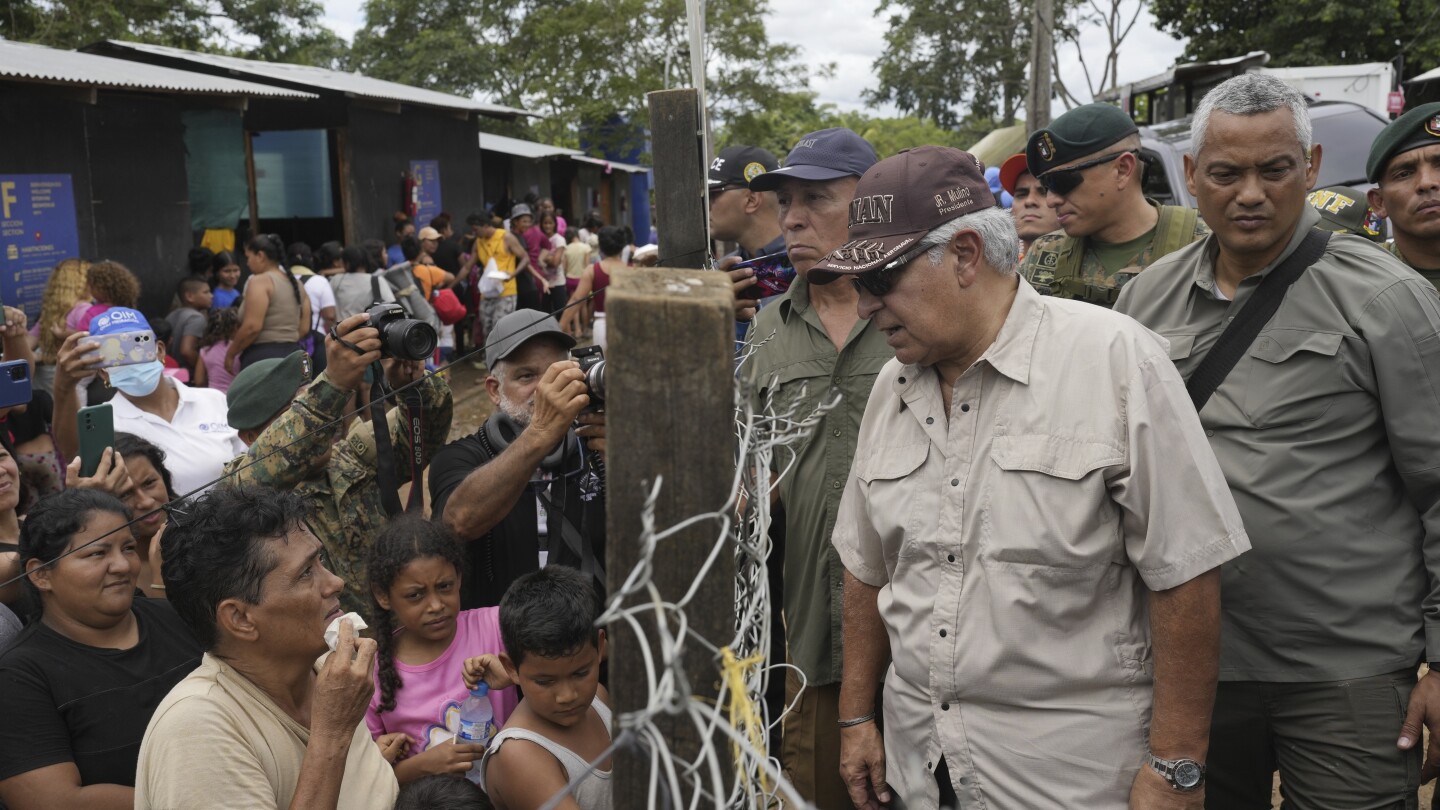PANAMA CITY (AP) — Panama’s President José Raúl Mulino said Thursday that migrants entering Panama through the treacherous Darien Gap will only be sent back to their countries if they agree to do so, potentially diminishing the impact of stricter immigration enforcement Mulino had pushed.
Mulino, who took office July 1, promised to halt the rising flow of migrants entering his country from Colombia and reached an agreement for the U.S. government to pay for repatriation flights.
But Thursday, he made clear whose problem this really is — and minimized Panama’s role.
“This is a United States problem that we are managing. People don’t want to live here in Panama, they want to go to the United States,” he said in his first weekly press conference. If migrants don’t want to return to their countries, “then they’ll go (to the U.S.). I can’t arrest them, we can’t forcibly repatriate them.”
More than 500,000 migrants crossed the Darien Gap in a record-breaking 2023. So far this year, more than 212,000 migrants have crossed. The National Border Service this week reported that 11,363 migrants had crossed the border since Mulino took office, about 9,000 fewer than the same period last year.
Panama’s border police have erected about three miles of barbed wire to block some trails and funnel migrants to a single reception point.
Mulino said by way of explanation Thursday that processes for repatriation are governed by international agreements, but he did not go into detail about why Panama could not deport migrants who entered the country illegally.
The president called on migrants who survive the dangerous Darien crossing — a journey shortened considerably by those profiting from rising migration, but still including rushing rivers, venomous snakes, bandits and sexual assaults — to consider whether they want to continue or return home.
Mulino also said he held out hope that Venezuela’s presidential election July 28 could lead to a decrease in the number of Venezuelan migrants who make up more than half of those crossing the Darien.
“Practically all of Venezuela is walking through there every day,” Mulino said. “If the elections in that country are carried out properly, respecting the popular will regardless of who wins, I’m sure that that number will go down.”
___
Follow AP’s coverage of Latin America and the Caribbean at https://apnews.com/hub/latin-america

